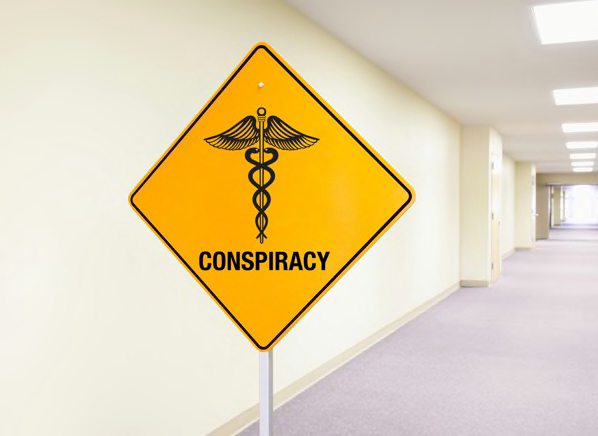Sign In

Menu
Suggested Searches
Recent Searches
Suggested Searches
Product Ratings
Resources
Chat With AskCR
Resources
All Products A-ZThe payment for your account couldn't be processed or you've canceled your account with us.
Re-activateMy account
Sign In
My account
Sign In


I've always loved a good conspiracy theory. And, as Consumer Reports' chief medical researcher, being skeptical about health claims and medical interventions is part and parcel of the work I do. I'm also—yes, I admit it—a huge fan of a well-designed survey. Combine those things and I'm in heaven—which is why I'm so taken with a study out this week that looked at six popular medical conspiracies and what people's belief in them says about their other health habits.
Researchers from the University of Chicago's political science department surveyed 1,351 adults nationwide to determine the extent of "medical conspiracism" (my new favorite phrase!) in the U.S. The study was published this week in the journal JAMA Internal Medicine. Shown below are the percentage of people surveyed who agreed with the following statements.
Yes, it's interesting that so many Americans believe those things. But without getting mired in the details of each controversy, what really fascinated me was how belief in those conspiracies correlated with other health habits.
For example, "high conspiracists" were less likely to use sunscreen, get an annual flu shot, or see a dentist or doctor on a regular basis. They also tended to rely more on vitamin and herbal supplementation and purchase organic and locally grown food. (Full disclosure: I think buying local and organic food makes a lot of sense, but relying on vitamin and herbal supplements? Not so much.)
As the authors of the study note, it's easy for many of us to just laugh off conspiracy theories "as a delusional fringe of paranoid cranks," but most people who endorse these conspiracies are just normal folks. After all, over the years industry, our government, and some medical researchers have given us more than a few reasons to doubt that they always have our best interest in mind.
Still, the evidence is pretty strong that adhering to several of those medical conspiracies, such as not vaccinating your children, can compromise your health and that of those around you. And in my experience, you can usually get a good sense of a claim's validity by digging into the research. Are the claims backed by published, peer-reviewed studies, and coming from reputable sources? So sure, have a healthy skepticism about medical claims. I do: It's part of my job. But be particularly dubious about the unsubstantiated ones, such as those you see on talk shows or late night TV being pitched as the newest weight-loss supplements or products touted as designed to extend your longevity.
—Chris Hendel
Chris Hendel has been Consumer Reports' chief medical researcher since 1989 and is one of the founders of Consumer Reports on Health, our monthly health newsletter.
 Build & Buy Car Buying Service
Build & Buy Car Buying Service
Save thousands off MSRP with upfront dealer pricing information and a transparent car buying experience.
 Get Ratings on the go and compare
Get Ratings on the go and compare
while you shop